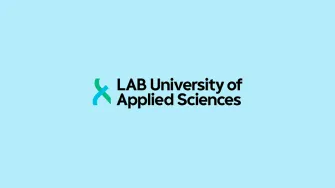Intangible value creation
Design Collaboration for Sustainable Business
The need for sustainable solutions is undeniable and needed more than ever. The consequences of climate change create global challenges affecting everyone regardless of geographic location or nationality. The effects significantly impact the environment and social and economic levels. It has been estimated that 80% of a product’s environmental impacts are defined in the design phase. Design offers ways to preserve value in product design and the entire service process. Design as a method provides solutions for circularity and sustainability with its problem-solving ability. This means that design also has a significant role in production and manufacturing. Design is a tool in the transition towards the circular economy. Nevertheless, there is still a big unused potential, and many methods and models have been piloted but not yet widely implemented. This is the specific area that the Design Collaboration for Sustainable Business project is focusing on.
The current use of natural resources and the impacts of overconsumption are environmentally unsustainable both in Europe and globally. The Earth´s ecological carrying capacity is being exceeded at an alarming level. Globally, the world's overshoot day was last year in August, meaning we would need almost two earths to produce the natural resources we use. These challenges transcend national borders and affect all regions of Europe. New models and policy instruments must be developed to respond to future needs and to utilize future opportunities in new business. The above issues and the EU's ambitious greenhouse gas emission reduction targets (to be climate neutral by 2050), among other specific local, regional and national targets, mean that all partners involved in the DeCo project share common goals to develop sustainable and circular economy solutions. The partners believe in the methods of design as part of the solution to these complex challenges.
The project, led by LAB University of Applied Sciences, is carried out in transnational collaboration with ten organisations.
- Wallonie Design (Belgium)
- REGIONAL DEVELOPMENT FUND OF CENTRAL MACEDONIA (RDFCM) (Greece)
- Special Account for Research Funds of InternationalHellenic University (Greece)
- Public Institution for the Development of the MedimurjeCounty REDEA (Croatia)
- Moravian-Silesian Innovation Centre Ostrava (Czech Republic)
- The Finnish Society of Crafts and Design (Finland)
- The Regional Council of Päijät-Häme (Finland)
- Podkarpackie Innovation Centre (Poland)
- The Official Chamber of Commerce, Industry, Services and Navigation of Spain (Spain)
The current use of natural resources and the impacts of overconsumption are environmentally unsustainable both in Europe and globally. The Earth´s ecological carrying capacity is being exceeded at an alarming level. Globally, the world's overshoot day was last year in August, meaning we would need almost two earths to produce the natural resources we use. These challenges transcend national borders and affect all regions of Europe. New models and policy instruments must be developed to respond to future needs and to utilize future opportunities in new business. The above issues and the EU's ambitious greenhouse gas emission reduction targets (to be climate neutral by 2050), among other specific local, regional and national targets, mean that all partners involved in the DeCo project share common goals to develop sustainable and circular economy solutions. The partners believe in the methods of design as part of the solution to these complex challenges.
The project, led by LAB University of Applied Sciences, is carried out in transnational collaboration with ten organisations.
- Wallonie Design (Belgium)
- REGIONAL DEVELOPMENT FUND OF CENTRAL MACEDONIA (RDFCM) (Greece)
- Special Account for Research Funds of InternationalHellenic University (Greece)
- Public Institution for the Development of the MedimurjeCounty REDEA (Croatia)
- Moravian-Silesian Innovation Centre Ostrava (Czech Republic)
- The Finnish Society of Crafts and Design (Finland)
- The Regional Council of Päijät-Häme (Finland)
- Podkarpackie Innovation Centre (Poland)
- The Official Chamber of Commerce, Industry, Services and Navigation of Spain (Spain)
Project manager
Saija Malila
RDI specialist
saija [dot] malila lab [dot] fi
lab [dot] fi
 lab [dot] fi
lab [dot] fiMore information about the project
Project state
On-going
Project area
International
LAB role
Lead partner
Unit
Institute of Design and Fine Arts
Key competence
Intangible value creation



